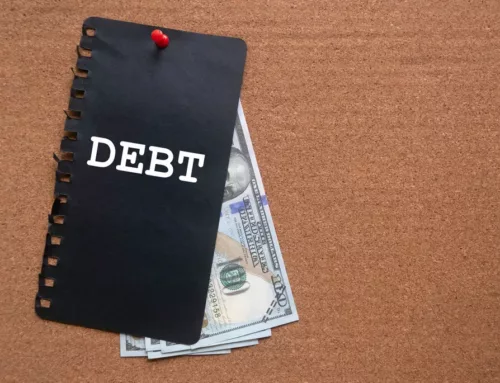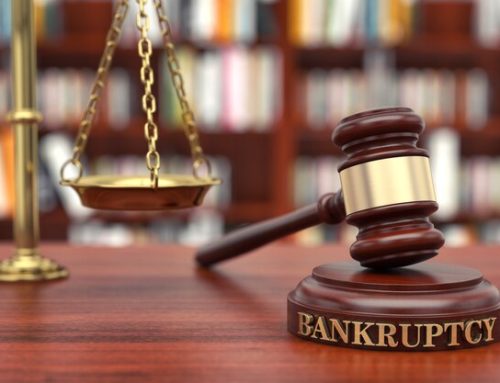Debt management is not easy. This is especially true if it is your first time dealing with problems related to your finances. Struggling with debt is extremely stressful if you are alone. This is the main reason why having a bankruptcy attorney is recommended. He or she can help you know how to file a bankruptcy petition, understand bankruptcy law, and know more about the different bankruptcy options available for you.
One of the most commonly filed bankruptcy chapters is Chapter 7. This is also referred to as liquidation bankruptcy since it allows you to wipe out debts without the need to complete a repayment plan. However, when filing Chapter 7, you must pass the bankruptcy means test for you to be eligible.
To wipe out your debts, you will need to liquidate your nonexempt assets. A bankruptcy trustee will evaluate your nonexempt properties and manage the sales and funds to be distributed to your creditors.
Chapter 7 is the simplest form of bankruptcy. Most bankruptcy cases filed under this chapter do not encounter major legal issues. The bankruptcy process is relatively more straightforward when compared to a reorganization case. Therefore, it would be processed faster compared to other bankruptcy forms.
 The first thing you should do is to gather all the necessary paperwork for filing bankruptcy. The bankruptcy proceeding would begin when you file a petition in bankruptcy to court. You shall provide complete details regarding your monthly income, living expenses, assets, debts, and recent financial transactions to the bankruptcy court.
The first thing you should do is to gather all the necessary paperwork for filing bankruptcy. The bankruptcy proceeding would begin when you file a petition in bankruptcy to court. You shall provide complete details regarding your monthly income, living expenses, assets, debts, and recent financial transactions to the bankruptcy court.
One of the advantages that you can look forward to when you file for bankruptcy is the automatic stay. An automatic stay protects you from creditor harassment, wage garnishment, and foreclosure. After you file a petition, the automatic stay shall take effect. A meeting of creditors will then be scheduled and you will be required to attend, mainly to answer questions related to your filing. After you attend the meeting of creditors, you will need to complete the requirements for a financial management certificate.
If the proceeding goes according to schedule, you may be able to obtain bankruptcy discharge within 60 days after the meeting of creditors. Your bankruptcy case will not be officially closed until the bankruptcy court decides on it and issues a final decree.
There are possible reasons why it would take longer to complete bankruptcy under Chapter 7. Although the court usually grants discharged debt in less than five months, some issues may affect the progress of your bankruptcy filing. It will also vary on the type of issue that you may encounter.
There are common circumstances that could affect your filing for bankruptcy under Chapter 7. One of these is when more documents are needed by your bankruptcy trustee to process your case. The bankruptcy procedure will be postponed until the requested paperwork has been provided. This issue would likely postpone the discharge by the additional period necessary for the meeting of creditors to take place.
In complex situations where a creditor believes that you have committed fraud and objects to the release of a certain debt, the case will be postponed until the meeting is finished, or even probably longer.
If you promptly complete all the required procedures, it is possible to already obtain the discharge within a short time frame after filing. However, unless the trustee has sold your personal property, distributed the sales to your creditors, and provided a final report to the bankruptcy court, your case will remain open.
If the creditor files a lawsuit to assess the non-dischargeability of a debt or objects to the entire bankruptcy filing, the filer will not obtain the discharge. Litigation often takes at least six months. The case will take even longer if you want to discharge a student loan debt. Here, filing a lawsuit and arguing that repaying the debt would cause undue hardship would be required to wipe out your student loan. You would need to negotiate with the lender or argue your claims at trial. This may delay the proceeding for a year or more.
It is important to complete the financial management course before the court order is released. The discharge would be delayed if you miss attending this course. If you delay for too long, this may result in the dismissal of your bankruptcy petition.
Financial problems can be difficult, but they are not impossible to overcome. Bankruptcy attorneys will help you decide on which type of bankruptcy will be the right option for you. Rebuild your financial future and have a fresh start with your finances. Talk to our experienced bankruptcy lawyers at Rollins Law Firm. Call us at 601-202-5101 for a free consultation.






Connect with Us